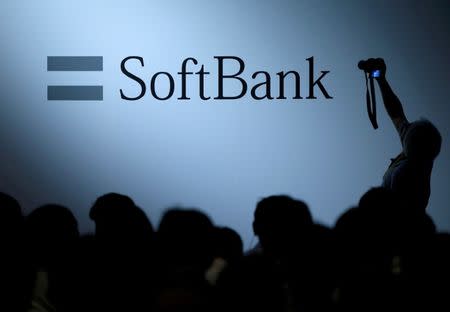Uber-SoftBank deal has closed, making SoftBank largest shareholder
By Heather Somerville
SAN FRANCISCO (Reuters) - A group of investors led by SoftBank Group Corp <9984.T> closed a deal with Uber Technologies Inc on Thursday, making SoftBank the largest stakeholder in the ride-services firm and providing a much-needed boost to controversy-ridden Uber.
The deal includes a large purchase of shares from existing Uber investors and employees at a discounted valuation for the company of $48 billion, a 30-percent drop from Uber's most recent valuation of $68 billion. These secondary stock sales will be completed by the end of the day Thursday on the Nasdaq Private Market, an Uber spokesman said.
The investor group, which is co-led by SoftBank and Dragoneer Investment Group, has also completed a $1.25-billion investment of fresh cash at the other, higher valuation, the spokesman said.
In all, the investors will take a 17.5-percent stake in Uber, with SoftBank keeping 15 percent, becoming the company's largest shareholder. The investment triggers a number of governance changes at Uber, including the addition of new board members, which take effect immediately.
"This is a great outcome for our shareholders, employees and customers, strengthening Uber's governance as we double down on our technology investments and continue to bring our services to more people in more places around the world," said the Uber spokesman.
SoftBank has added two representatives to Uber's board of directors: Rajeev Misra, who is chief executive of SoftBank's Vision Fund, a $98-billion tech investment vehicle; and Marcelo Claure, Sprint president and CEO and a member of SoftBank's board of directors, according to a person familiar with the matter.
"Uber has a very bright future under its new leadership," Misra said, referring to new Uber CEO Dara Khosrowshahi, who helped broker the deal and benefits from the new governance changes.
As part of the terms of the deal, the company will add four independent directors to its board, limit some early shareholders' voting power and slash the control wielded by co-founder and former CEO Travis Kalanick, who remains on the board.
Early Uber investor Benchmark Capital had also agreed to drop a lawsuit against Kalanick, filed in August in an effort to force him off the board, upon completion of the deal.
SoftBank had no trouble drumming up interest among shareholders, as many investors and employees were unable to sell as many shares as they would have liked because SoftBank had put limits on how much it would buy.
Kalanick sold nearly a third of his 10-percent stake in the ride-services company for about $1.4 billion, according to a person familiar with the matter. He had offered to sell half of his shares.
(Reporting by Heather Somerville; Editing by Phil Berlowitz and Sandra Maler)


